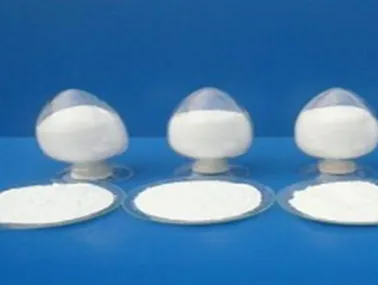
Understanding the Benefits and Uses of Boron Fertilizers for Crop Growth and Health
The Importance of Boron Fertilizer in Agriculture
Boron is an essential micronutrient that plays a significant role in plant growth and development. Though required in only small amounts, boron is crucial for various physiological processes, including cell division, flower and fruit development, and the synthesis of important compounds. As agricultural practices evolve and environmental challenges grow, the use of boron fertilizer has become an essential aspect of modern farming, especially for crops that are boron-sensitive or grown in boron-deficient soils.
Boron deficiency can lead to a range of problems in crops, including stunted growth, poor fruit and seed development, and susceptibility to disease. Symptoms of boron deficiency often manifest as yellowing leaves, necrosis at the tips, and in severe cases, flowering failure. Certain crops, like crucifers, potatoes, and various fruits, are particularly sensitive to low boron levels. Therefore, identifying and remedying boron deficiency in soil is critical for ensuring optimal crop yields.
In recent years, boron fertilizers have become increasingly popular among farmers as an effective solution for improving soil health and crop productivity. These fertilizers come in various formulations, including borax, boric acid, and other organic compounds, making it accessible for different agricultural practices. The choice of boron fertilizer often depends on soil tests, crop type, and specific agricultural needs. For example, borax is commonly used as a source of boron for many crops, while more soluble forms like boric acid are preferred for foliar applications.
boron fertilizer

When it comes to application methods, farmers can adopt several strategies to optimize boron uptake by plants. Soil application is one of the most common methods, where the fertilizer is mixed with soil before planting. This method is beneficial for long-term soil treatment but requires careful monitoring to avoid over-application, which can lead to toxicity. Foliar application is another effective method, allowing for quick absorption and immediate correction of deficiency symptoms. This method is often used in critical growth stages, such as flowering and fruit set, to ensure that the plants receive adequate boron when they need it most.
The timing of boron application is also essential. Typically, boron fertilizer should be applied during early growth stages or just before flowering, depending on the crop. Soil tests should guide the timing and quantity of application to prevent both deficiency and toxicity. Farmers must be cautious, as excess boron can harm plants, leading to symptoms such as leaf burn and stunted growth.
In addition to increasing crop yields, boron fertilizers can enhance the nutritional quality of produce. Boron helps in the synthesis of sugars and other vital compounds, improving the overall health and taste of the crops. By ensuring adequate boron levels, farmers contribute to better food quality, which ultimately benefits consumers and supports food security efforts.
In conclusion, the application of boron fertilizer is a critical component of modern agriculture. Understanding its importance, proper application methods, and the timing of applications can significantly impact soil health and crop productivity. As farmers face the challenges of climate change and soil degradation, utilizing boron fertilizers effectively can lead to sustainable practices that produce healthy crops while also preserving the environment. Ensuring that plants receive the necessary micronutrients, including boron, is vital for building resilient agricultural systems and achieving food security in our rapidly changing world. Thus, boron fertilizer is more than just an additive; it is a key player in enhancing agricultural productivity and sustainability.
-
Why Glacial Acetic Acid Food Grade Is Essential in FlavorNewsMay.26,2025
-
Surging Export Growth of Food Additives in ChinaNewsMay.26,2025
-
How Ammonium Nitrate Fertilizer Boosts Crop YieldsNewsMay.26,2025
-
How 1,2,3-Benzotriazole Shields Plastics from UV DegradationNewsMay.26,2025
-
Cyanide in Gold Mining: Protecting People and the PlanetNewsMay.26,2025
-
Aluminum Hydroxide in Modern Sunscreen FormulationsNewsMay.26,2025
-
Understanding Synthetic Rubber OptionsNewsApr.27,2025
Hebei Tenger Chemical Technology Co., Ltd. focuses on the chemical industry and is committed to the export service of chemical raw materials.
-

view more DiethanolisopropanolamineIn the ever-growing field of chemical solutions, diethanolisopropanolamine (DEIPA) stands out as a versatile and important compound. Due to its unique chemical structure and properties, DEIPA is of interest to various industries including construction, personal care, and agriculture. -

view more TriisopropanolamineTriisopropanolamine (TIPA) alkanol amine substance, is a kind of alcohol amine compound with amino and alcohol hydroxyl, and because of its molecules contains both amino and hydroxyl. -

view more Tetramethyl Thiuram DisulfideTetramethyl thiuram disulfide, also known as TMTD, is a white to light-yellow powder with a distinct sulfur-like odor. It is soluble in organic solvents such as benzene, acetone, and ethyl acetate, making it highly versatile for use in different formulations. TMTD is known for its excellent vulcanization acceleration properties, which makes it a key ingredient in the production of rubber products. Additionally, it acts as an effective fungicide and bactericide, making it valuable in agricultural applications. Its high purity and stability ensure consistent performance, making it a preferred choice for manufacturers across various industries.











